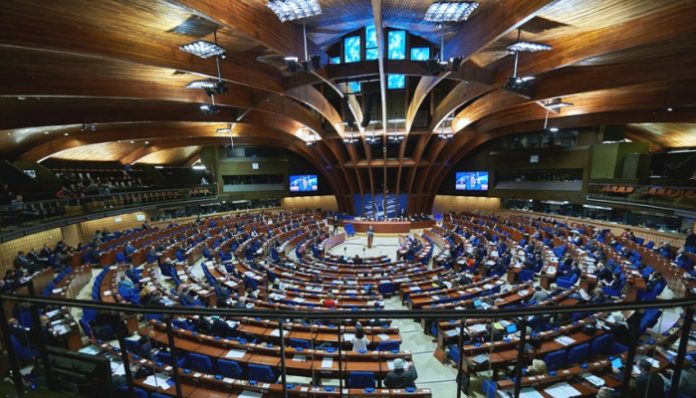Levent Kenez/Stockholm
The potential consequences of Turkey’s failure to release a jailed businessman and philanthropist in spite of rulings by the European Court of Human Rights (ECtHR) were discussed at a meeting of the parliamentary Committee on Foreign Relations last week. Opposition members of parliament stated that this could lead to harsh sanctions, while the deputy foreign minister also noted that Turkey’s expulsion from the Council of Europe (CoE) was a possibility but said they would work to prevent it.
The CoE’s Committee of Ministers considered further action during its June 5-7 meeting in the event Turkish authorities did not release Osman Kavala, who has been in prison since October 18, 2017 despite a 2019 ECtHR ruling that deemed his detention in pursuance of an “ulterior motive,” that of silencing him as a human rights defender.
Minutes of the parliamentary committee meeting:
In April 2022 Kavala was sentenced to aggravated life due to his alleged involvement in the 2013 Gezi Park protests. On September 28, the Supreme Court of Appeals upheld Kavala’s sentence.
Turkey’s non-compliance with the ECtHR’s judgment on Kavala led to the CoE launching infringement proceedings against Turkey in February 2022, marking the second instance of such a procedure against a member state.
Cemalettin Kani Torun, a former diplomat and a member of the Future (Gelecek) Party, stated at the committee meeting that if Kavala is not released by the end of the year, Turkey is likely to be expelled from the CoE. Torun emphasized that the cost Turkey would have to pay is very high, and he urged the Constitutional Court, which is handling Kavala’s case, to be more cautious and ensure that Turkey does not pay this cost, saying, “Because this would not only result in Turkey’s expulsion from the Council of Europe but could also lead to economic and international difficulties for Turkey, especially with international funds and the like.”
Namık Tan, a member of the main opposition Republican People’s Party (CHP) and a former diplomat, also criticized the Ministry of Foreign Affairs for its stance on Kavala. He expressed disapproval of a ministry statement that referred to Kavala as “an individual” while simultaneously pointing out the significance of the 11th Václav Havel Human Rights Prize awarded to Kavala by the Parliamentary Assembly of the Council of Europe (PACE) acknowledging his exceptional work in civil society in defense of human rights.
Deputy Foreign Minister Ahmet Yıldız voiced strong support for Turkey’s continued membership in the CoE, underscoring the council’s significance in upholding advanced human rights standards in Turkey. Yıldız emphasized the necessity of Turkey’s active presence on the council since decisions made in its absence could have implications for Turkey’s influence on international platforms. He expressed the belief that the Turkish parliament and judiciary would operate with this consideration in mind.
Yıldız underlined hope in the Turkish judiciary but acknowledged that there have been difficulties.
Meanwhile, PACE held an urgent debate in Strasbourg on October 13 during which they called on Turkey to adhere to the binding judgments of the ECtHR and release Kavala. They underscored that this case undermines “the credibility of the Organisation.”
In a resolution based on a report by Austrian deputy Petra Bayr, PACE expressed its disappointment with Turkey for failing to release Kavala despite a clear judgment from the ECtHR in 2019 that called for his immediate release.
Furthermore, PACE highlighted that Kavala’s aggravated life sentence was upheld in September 2023. The Strasbourg court had previously determined that there was no credible evidence to support the charges against him and that his detention was aimed at silencing him, categorizing him as a “political prisoner.”
In light of this PACE believes it’s time to urge member states to pass “Magnitsky legislation” or other legal measures to sanction Turkish officials responsible for Kavala’s illegal detention if his release doesn’t take place.
Additionally PACE mentioned its ability to challenge the credentials of the Turkish delegation in its 2024 session if Kavala is not released by January 1, 2024.












